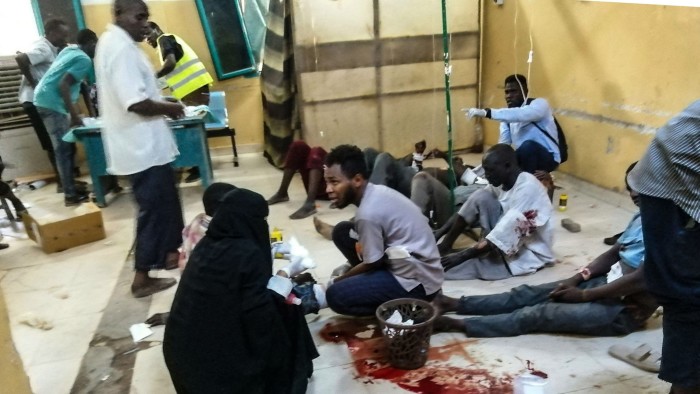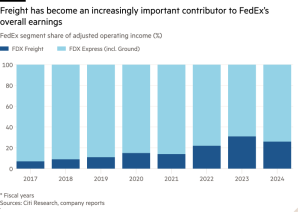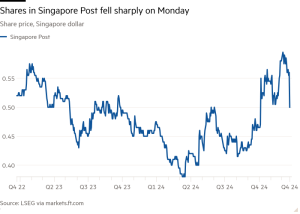Act now to save Sudan’s hospitals

Unlock the Editor’s Digest for free
Roula Khalaf, Editor of the FT, selects her favourite stories in this weekly newsletter.
The writer is Sudanese American Physicians Association country director
In Sudan, Khartoum’s hospitals used to be a source of hope and refuge. They were places where the sick could be healed, babies could take their first breaths and young doctors could learn the art of saving lives.
Today, they are a symbol of the catastrophic damage wrought by the civil war.
I have seen this damage first-hand. In the first 500 days of the conflict, nearly half the hospitals in Sudan’s capital have been damaged. This has prevented access to or delayed care for at least one-third of the patient population in Khartoum State, according to a new report from the Sudanese American Physicians Association (Sapa) and Yale School of Public Health’s Humanitarian Research Lab.
Satellite imagery and local reports have documented damage to 41 out of 87 hospitals in the capital, in 55 separate incidents between April 15 2023, and August 26 2024. Eleven of them were attacked multiple times. Seventeen of the city’s 25 teaching hospitals have been damaged, jeopardising training opportunities for the next generation of healthcare workers.
These attacks clearly violate international humanitarian law. They have pushed an already fragile healthcare system to the brink of collapse. The situation is devastating. In November 2023, the World Health Organization estimated that 70 per cent of healthcare facilities in conflict-affected states were no longer operational. The situation has further deteriorated since.
The collateral damage to Sudan’s population extends beyond Khartoum. Hospitals in the capital were once the backbone of the country’s healthcare system, providing specialised services such as complex surgeries, paediatric care and oncology treatments.
The ripple effects of the attacks will continue for years. For the people of Sudan and throughout the region, the humanitarian crisis means increased rates of preventable diseases, delayed care, unnecessary miscarriages and more sickness and death amid an already brutal civil war.
It’s time for the world to act. Leaders from the international community must raise awareness, amplify the voices of those affected and call for an immediate halt to attacks on healthcare facilities. For too long, the effects of this civil war have gone unacknowledged.
The international community must also commit to rebuilding Sudan’s healthcare system, both now and once the fighting ends. Humanitarian organisations, governments and private donors must come together to provide immediate and long-term support for the healthcare needs of Sudan’s population.
Today, that means funding mobile clinics, securing safe zones for medical operations and ensuring access to essential medicines and supplies. In the long term, it means supporting the rebuilding of facilities, training and retaining healthcare workers, and restoring supply chains for essential medicines and equipment.
Concrete steps must also be taken to hold perpetrators accountable and ensure that healthcare workers, patients and facilities are protected under international law. We cannot allow individuals and groups to perpetuate these attacks, in Sudan or anywhere else. Efforts to investigate and prosecute violations of international humanitarian law must be prioritised, sending a clear message that targeting healthcare has real consequences.
Hospitals are supposed to be sanctuaries of healing, not targets or collateral damage.
Sudan’s people deserve a future where their hospitals are once again places of healing and refuge. It is humanity’s shared responsibility to help make that future a reality.
Anmar Homeida, the executive director of Sapa, contributed to this article
#Act #save #Sudans #hospitals





